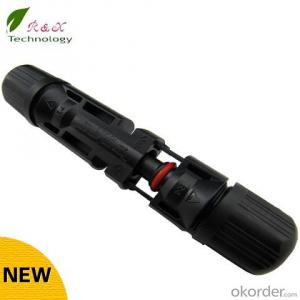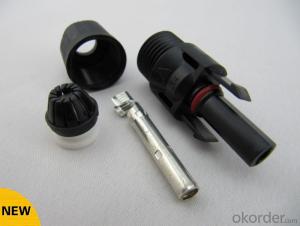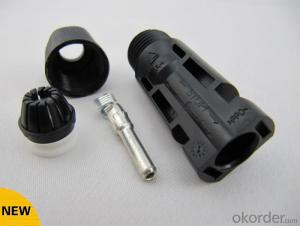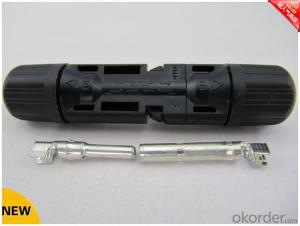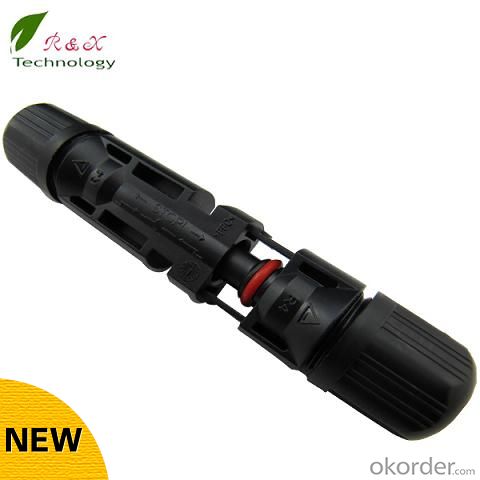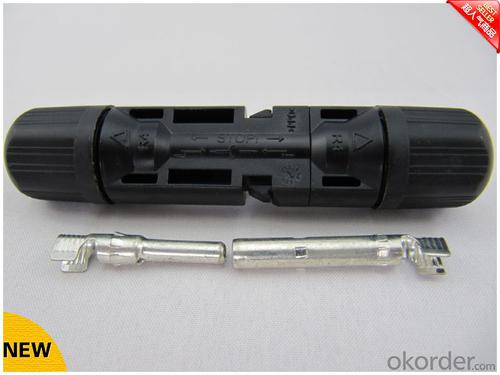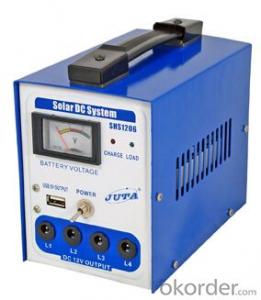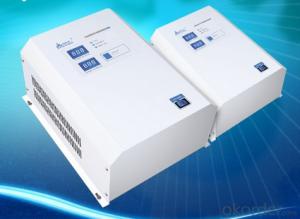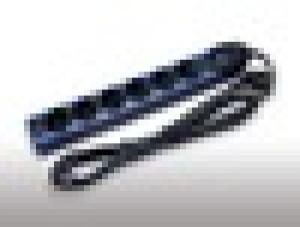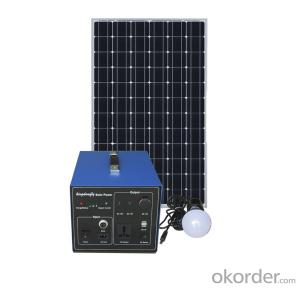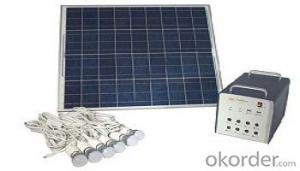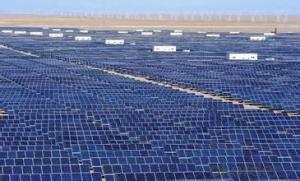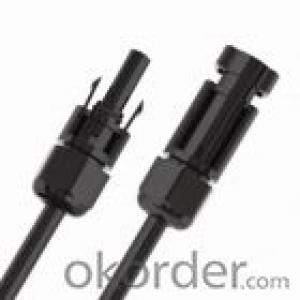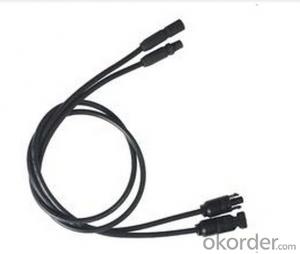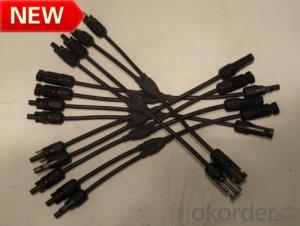MC4 Connector for Solar Energy Systems in New York
- Loading Port:
- Guangzhou
- Payment Terms:
- TT OR LC
- Min Order Qty:
- 100 set
- Supply Capability:
- 50000 set/month
OKorder Service Pledge
OKorder Financial Service
You Might Also Like
Brief introductions of product:
Connector RH4 System for photovoltaic adopts contact and insertion of reed with inner-knob type.It is used with male and famale points.pv junction box and cables made of elastomeric material and makes contact and isertion more certified by IEC61215 and TUV 2PFG1161.
Mainly parameters of product:
Rated voltage 1000V DC
Rated current 30A
Test volaage 6KV(50HZ,1min.)
Ambient temperaure range -40°C...+90°C
Upper limiting temperature 105°C
Degree of protection,mated IP67
unmated IP2X
Contact resistance of plug connectors 0.5m?
Safety class II
Contact system R4 Multilam
Type of termination Crimping
Contact material
Copper,tin plated
Locking system Snap-in(R4)
Cable type PV-F 1169 1*4mm2
1*6mm2
Design paper of product:
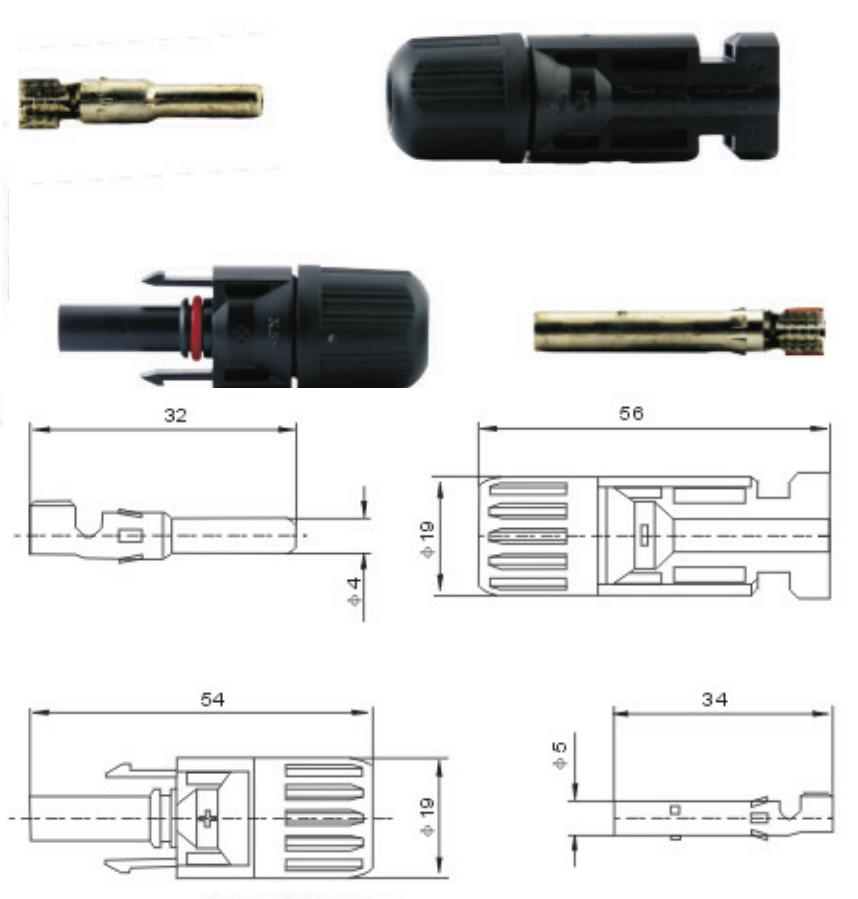
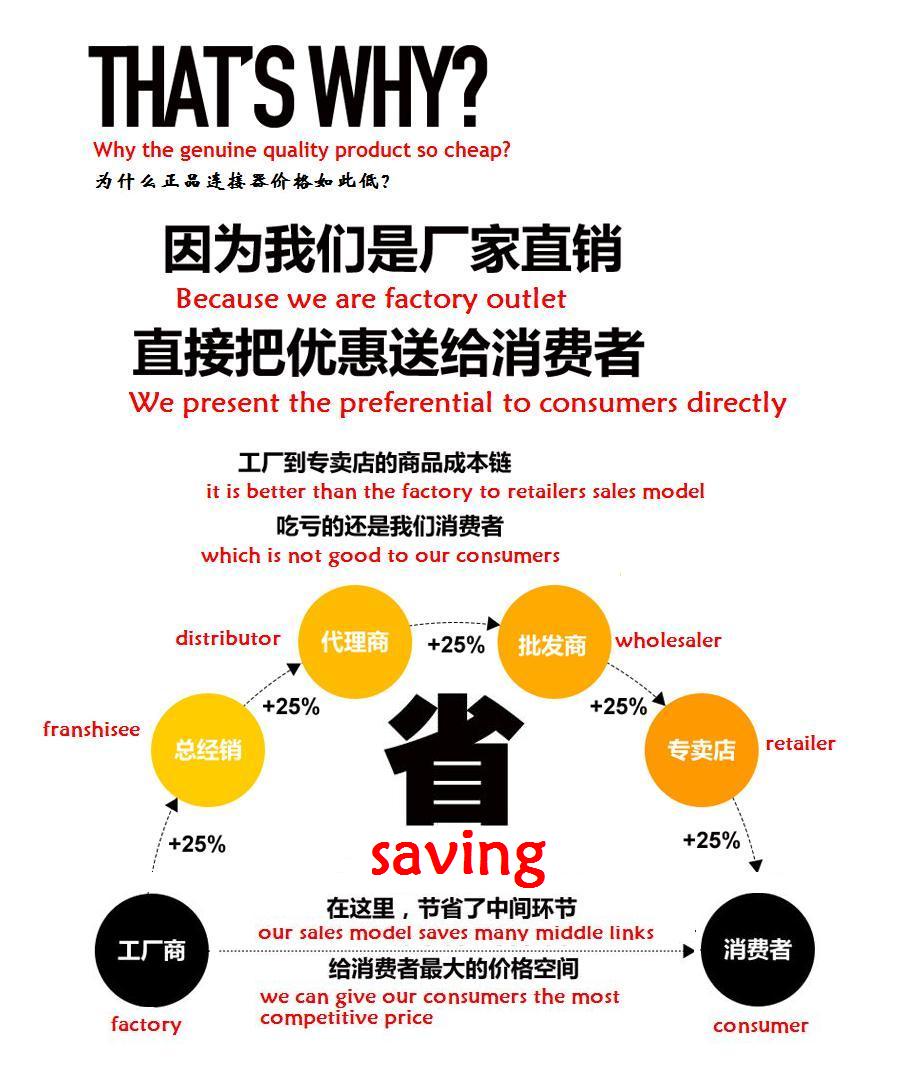
- Q: How much sunlight is needed for a solar energy system to work effectively?
- The amount of sunlight needed for a solar energy system to work effectively varies depending on several factors. The efficiency of the solar panels, the geographical location, the angle and orientation of the panels, and the time of year are all factors that can influence the amount of sunlight required. In general, solar panels work most effectively when they receive direct sunlight for a significant portion of the day. Direct sunlight refers to the sunlight that reaches the panels without any obstructions, such as shadows from nearby buildings or trees. This direct sunlight provides the highest level of energy and therefore maximizes the system's efficiency. However, even when direct sunlight is not available, solar panels can still generate electricity. They can still produce energy under cloudy conditions or when the sunlight is diffused. While the energy production may be reduced in these situations, it is still possible to generate a significant amount of electricity, especially with the advancements in solar panel technology. The geographical location also plays a vital role in determining the amount of sunlight available. Areas closer to the equator generally receive more sunlight throughout the year, while regions farther from the equator may experience shorter days during certain seasons. This means that solar energy systems in regions closer to the equator may require less sunlight to function effectively than those in areas with less sunlight. The angle and orientation of the solar panels also impact the system's effectiveness. Panels that are angled towards the sun and are facing south in the northern hemisphere (or north in the southern hemisphere) maximize their exposure to sunlight. By optimizing the panel's position, the system can capture the maximum amount of sunlight available, enhancing its effectiveness. Lastly, the time of year affects the amount of sunlight a solar energy system receives. During the summer months, when the days are longer and the sun is higher in the sky, solar panels have more access to sunlight, making them more effective. In contrast, during winter, when the days are shorter and the sun is lower in the sky, the system may receive less sunlight, impacting its performance. In conclusion, the amount of sunlight needed for a solar energy system to work effectively depends on various factors such as the efficiency of the panels, geographical location, panel orientation, and the time of year. While direct sunlight is optimal, solar panels can still generate electricity under cloudy or diffused sunlight conditions. It is best to consult with a solar energy professional to determine the specific sunlight requirements for a particular system based on these factors.
- Q: Can solar panels be installed on uneven or sloped surfaces?
- Yes, solar panels can be installed on uneven or sloped surfaces. However, the installation process may require additional components such as mounting brackets or frames to ensure the panels are securely attached and properly angled for optimal sunlight exposure.
- Q: Can solar energy systems be used in cloudy or rainy climates?
- Yes, solar energy systems can still be used in cloudy or rainy climates. While the efficiency of solar panels may be slightly reduced, they can still generate electricity even under overcast skies. Additionally, advancements in solar technology and the use of energy storage solutions can help overcome the intermittent nature of sunlight in such climates, making solar energy a viable option for generating power regardless of the weather conditions.
- Q: Can solar energy systems be used in areas with limited access to sanitation facilities?
- Yes, solar energy systems can be used in areas with limited access to sanitation facilities. Solar energy systems can provide electricity to power sanitation facilities such as water pumps, filtration systems, and waste treatment processes, helping to improve sanitation conditions in these areas. Additionally, solar-powered systems can also be used to generate heat for water heating, further supporting sanitation practices.
- Q: Can solar energy systems be used in powering warehouses or distribution centers?
- Yes, solar energy systems can definitely be used in powering warehouses or distribution centers. In fact, many businesses are increasingly adopting solar energy as a sustainable and cost-effective solution for their energy needs. Warehouses and distribution centers are typically large facilities with ample roof space, making them ideal candidates for solar panel installations. By installing solar panels on the roof or ground of these facilities, the generated solar energy can be used to power various operations within the warehouse or distribution center. This includes lighting systems, climate control, refrigeration units, conveyor belts, and other machinery or equipment. The generated energy can also be stored in batteries for later use during cloudy days or at night. Several advantages make solar energy systems a great fit for warehouses and distribution centers. Firstly, solar power helps reduce reliance on the traditional grid, leading to reduced electricity bills and long-term cost savings. Moreover, as solar energy is a renewable and clean energy source, using it reduces greenhouse gas emissions and contributes to a more sustainable business operation. In addition to the cost and environmental benefits, solar energy systems can also provide businesses with energy independence and resilience. By generating their own power, warehouses and distribution centers are less vulnerable to power outages or fluctuations in the grid, ensuring uninterrupted operations and minimizing downtime. Overall, the use of solar energy systems in powering warehouses and distribution centers presents numerous advantages, including cost savings, sustainability, energy independence, and operational resilience. As a result, more and more businesses are embracing solar energy as a reliable and efficient solution for their energy needs in these types of facilities.
- Q: How can solar energy systems reduce electricity bills?
- Generating free and renewable energy from the sun, solar energy systems have the potential to significantly decrease electricity bills. Unlike conventional electricity sources like fossil fuels, solar energy doesn't necessitate ongoing expenses for fuel or maintenance. Once installed, a solar energy system can produce electricity for many years, offsetting a substantial portion of a household's or business's electricity usage. By utilizing the power of the sun, solar energy systems can generate electricity when it is most in demand during daylight hours. Consequently, solar energy can directly compensate for electricity consumption during peak times, diminishing the need to draw power from the grid. Consequently, electricity bills can be drastically reduced or even eliminated, depending on the size and efficiency of the solar energy system. Furthermore, solar energy systems often provide homeowners and businesses with the opportunity to take advantage of numerous financial incentives and programs. These incentives may include tax credits, grants, or policies such as net metering, which allows surplus solar energy to be fed back into the grid and credited towards future electricity bills. These incentives can augment the financial advantages of installing solar energy systems, making them even more cost-effective. Additionally, solar energy systems offer long-term savings. As the cost of electricity from conventional sources continues to escalate, solar energy remains a steadfast and predictable investment. By securing a fixed cost for electricity generation, solar energy systems safeguard against future price hikes and inflation, ensuring that electricity bills remain low and foreseeable for years to come. Overall, solar energy systems provide a sustainable and economically viable solution for reducing electricity bills. By tapping into the abundant and free energy of the sun, households and businesses can enjoy substantial savings, financial incentives, and long-term stability in their energy costs.
- Q: Can solar energy systems be used in areas with limited access to food?
- Yes, solar energy systems can be used in areas with limited access to food. Solar energy systems provide a sustainable and reliable source of electricity, which can power various applications, including food production and processing. Solar-powered irrigation systems can be used to water crops, while solar-powered refrigeration can help preserve food. Additionally, solar energy can be utilized to power hydroponic or vertical farming systems, enabling food production in limited spaces. Therefore, solar energy systems can play a crucial role in addressing food scarcity and promoting food security in areas with limited access to food.
- Q: Can solar energy systems be used in conjunction with wind energy systems?
- Yes, solar energy systems can be used in conjunction with wind energy systems. This combination, often referred to as hybrid renewable energy systems, allows for more consistent and reliable power generation. By utilizing both solar and wind energy sources, the system can maximize energy production and provide a sustainable and efficient solution.
- Q: Can solar energy systems be used for powering remote monitoring systems?
- Yes, solar energy systems can be used for powering remote monitoring systems. Solar panels can generate electricity from sunlight, which can then be stored in batteries for use during non-sunny periods. This makes solar energy a reliable and sustainable power source for remote monitoring systems, allowing them to operate off-grid and in remote locations without access to traditional electrical infrastructure.
- Q: How does solar energy impact property values?
- Solar energy can have a positive impact on property values as it is considered a desirable feature by many homebuyers. Homes with solar panels typically sell faster and at a higher price compared to similar properties without solar installations. This is because solar energy can significantly reduce or eliminate electricity costs, making the property more affordable to maintain. Additionally, solar energy contributes to a greener and more sustainable lifestyle, which is increasingly valued by homeowners.
Send your message to us
MC4 Connector for Solar Energy Systems in New York
- Loading Port:
- Guangzhou
- Payment Terms:
- TT OR LC
- Min Order Qty:
- 100 set
- Supply Capability:
- 50000 set/month
OKorder Service Pledge
OKorder Financial Service
Similar products
Hot products
Hot Searches
Related keywords
